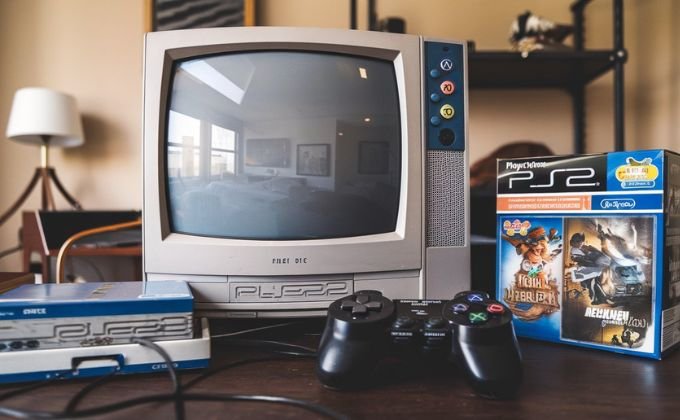The PlayStation 2 (PS2) stands as a monumental achievement in the gaming industry, not only for its commercial success but also for its profound impact on game design, technology, and the culture surrounding gaming. Launched by Sony in March 2000, the PS2 quickly became a beloved console, reshaping how games were played and perceived. In this article, we’ll explore how the PS2 changed the industry, highlighting its innovations, contributions to gaming culture, and its legacy that continues to influence the gaming landscape today.
A Major Leap in Technology
When the PS2 hit the market, it was a technological marvel. Equipped with a powerful Emotion Engine, the PS2 boasted capabilities that far surpassed its predecessor, the original PlayStation. This new hardware allowed developers to create more complex and visually stunning games, setting a new standard for graphics and gameplay. Titles like Grand Theft Auto: San Andreas and Final Fantasy X showcased the console’s capabilities, providing players with immersive worlds that were previously unimaginable.
Additionally, the PS2 was one of the first consoles to incorporate a DVD player, which significantly boosted its appeal. By combining gaming and DVD playback, the PS2 attracted a wider audience and positioned itself as an all-in-one entertainment device. This feature not only enhanced the console’s marketability but also encouraged families to invest in the PS2 as a multimedia center, thereby expanding the gaming demographic.
The Rise of 3D Graphics and Open Worlds
The PS2 era marked a significant shift towards fully realized 3D graphics, allowing developers to create expansive environments for players to explore. Unlike the 2D side-scrolling games of the past, titles such as Jak and Daxter and Shadow of the Colossus presented players with rich, open worlds filled with intricate details and engaging narratives. These 3D environments encouraged exploration and experimentation, fostering a sense of agency and freedom that resonated with gamers.
The introduction of open-world games was particularly transformative. Players were no longer confined to linear paths; instead, they could roam vast landscapes, undertake side quests, and interact with non-playable characters (NPCs) in dynamic ways. This evolution not only enriched gameplay experiences but also paved the way for future game design, influencing popular franchises like The Elder Scrolls and The Legend of Zelda.
Expanding Genres and Gameplay Mechanics
The PS2 played a crucial role in diversifying gaming genres, providing a platform for a variety of gameplay styles. From role-playing games (RPGs) to survival horror and action-adventure, the PS2 library boasted a wide range of titles that appealed to different audiences. Games like Final Fantasy X and Kingdom Hearts introduced RPG mechanics to a broader audience, while Resident Evil 4 revolutionized the survival horror genre with its innovative gameplay and narrative techniques.
Moreover, the PS2 encouraged experimentation with gameplay mechanics, leading to the development of new systems and styles. The introduction of features like character progression, branching narratives, and intricate combat systems became common in many PS2 titles. This focus on narrative depth and character development not only enhanced player engagement but also established gaming as a legitimate storytelling medium.
A Cultural Phenomenon
As the PS2 gained popularity, it became a cultural phenomenon that transcended gaming. It fostered a sense of community among players, leading to the rise of gaming forums, fan sites, and online multiplayer experiences. Titles like Gran Turismo 3: A-Spec and SOCOM: U.S. Navy SEALs paved the way for online gaming, enabling players to connect with others around the world and compete in real-time.
Furthermore, the PS2’s impact on popular culture extended beyond gaming. It inspired movies, merchandise, and even music, as its most popular franchises became household names. The cross-pollination of gaming with other entertainment mediums solidified the PS2’s position in popular culture, paving the way for future consoles to follow suit.
The Legacy of the PS2
The influence of the PS2 can still be felt in today’s gaming landscape. Many of the advancements introduced during its reign set the stage for subsequent consoles, shaping the way games are developed and marketed. The focus on high-quality graphics, expansive worlds, and immersive narratives has become standard in the industry.
Moreover, the PS2’s commitment to backward compatibility—allowing players to play PS1 games—laid the groundwork for the practices we see today, where consoles often feature extensive libraries of games from previous generations. This has encouraged players to revisit classic titles and has ensured that beloved games remain accessible over time.
Conclusion
The PlayStation 2 was more than just a gaming console; it was a catalyst for change in the gaming industry. By pushing technological boundaries, expanding genres, and fostering a vibrant gaming community, the PS2 transformed how games were created, played, and perceived. As we continue to enjoy modern gaming experiences, it’s essential to recognize and celebrate the contributions of the PS2, a console that truly changed the landscape of the gaming world. If you’re looking to experience this evolution firsthand, make sure to play PS2 games that not only represent a significant chapter in gaming history but also continue to inspire new generations of gamers.



